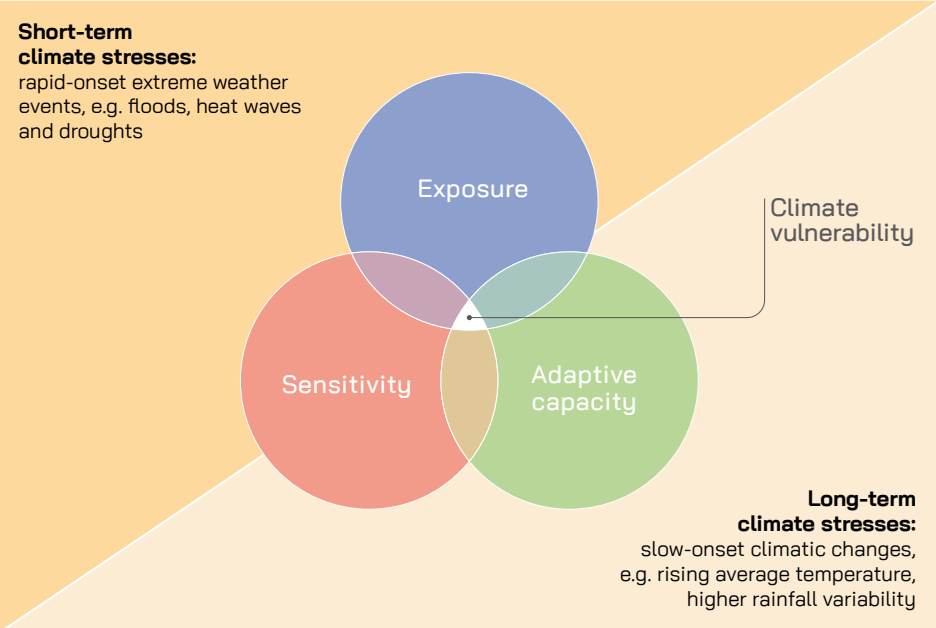In this Article
A study conducted by the Food and Agriculture Organization of the United Nations (FAO) examined how wealth, gender, and age shape vulnerabilities to climate change. The study shows how climate change disproportionately impacts rural women, youth, and those living in poverty, with variations based on socio-economic factors after drawing data from 24 low and middle-income countries, covering over 950 million rural people.

Climate change affects the livelihoods and well-being of rural populations by directly reducing agricultural productivity and indirectly limiting non-agricultural income opportunities, raising food prices, and disrupting agricultural markets. Climate vulnerability assessments must consider farm and non-farm dimensions, with vulnerability influenced by agency, socio-economic resources, and access to support services. Climate vulnerability consists of three key elements: exposure to climate stressors, sensitivity to their impacts, and adaptive capacity. Wealth, gender, and age significantly influence an individual’s exposure, sensitivity, and ability to adapt to climate change.

According to the study, young rural households are more resilient to climate stressors than older households, particularly due to their ability to access off-farm income opportunities. Extreme weather events, such as heavy rainfall and heatwaves, tend to increase the off-farm incomes of young households, allowing them to compensate for farm income losses. While older households struggle more with income vulnerability during such events, young households increase their assets by acquiring livestock and diversifying income sources. Extreme heat also leads to more off-farm work for young people. Overall, young households demonstrate greater adaptability to climate change by leveraging off-farm employment, highlighting their key role in rural economies during extreme weather events.
Employment generation and business formation within agrifood systems are critical, particularly for young people. Agrifood enterprises enable individuals, especially rural youth, to diversify their income sources and reduce their dependence on climate-sensitive primary agricultural production.
Reference: FAO. 2024. The unjust climate – Measuring the impacts of climate change on rural poor, women, and youth. Rome. https://doi.org/10.4060/cc9680en.




